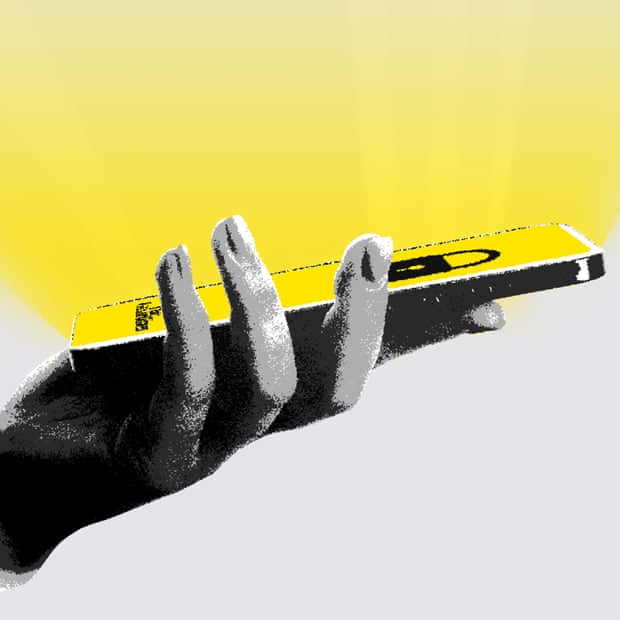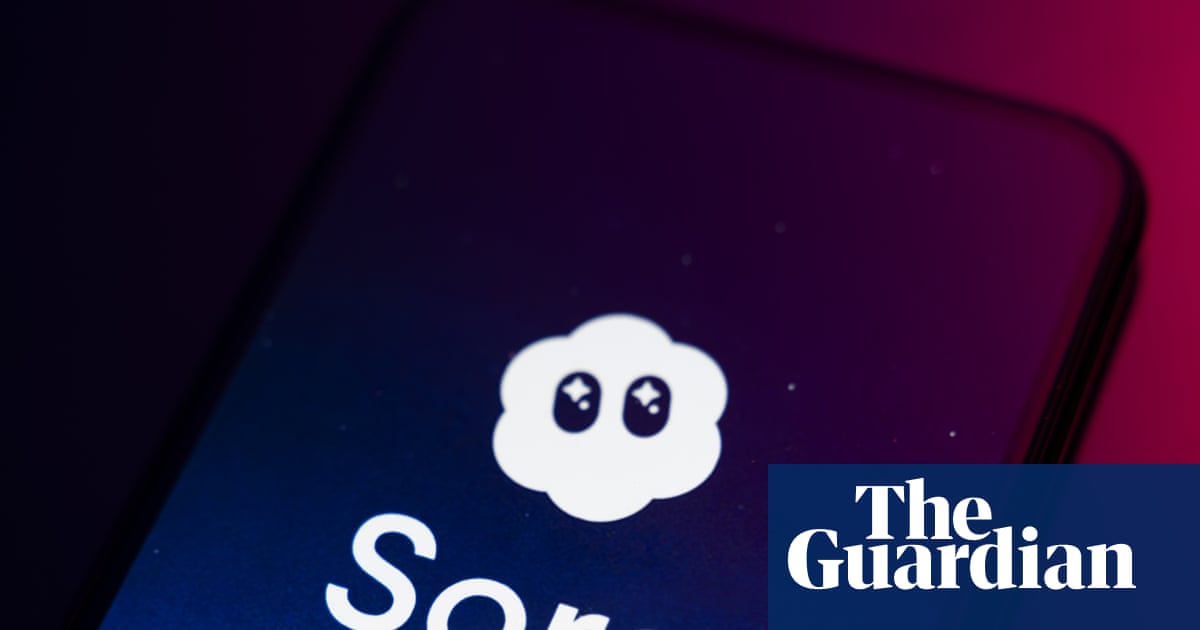OpenAI launched the newest iteration of its synthetic intelligence-powered video generator on Tuesday, including a social feed that permits individuals to share their reasonable movies.
Inside hours of Sora 2’s, launch, although, lots of the movies populating the feed and spilling over to older social media platforms depicted copyrighted characters in compromising conditions in addition to graphic scenes of violence and racism. OpenAI’s personal phrases of service for Sora in addition to ChatGPT’s picture or textual content technology prohibit content material that “promotes violence” or, extra broadly, “causes hurt”.
In prompts and clips reviewed by the Guardian, Sora generated a number of movies of bomb and mass-shooting scares, with panicked individuals screaming and operating throughout school campuses and in crowded locations like New York’s Grand Central Station. Different prompts created scenes from battle zones in Gaza and Myanmar, the place kids fabricated by AI spoke about their properties being burned. One video with the immediate “Ethiopia footage civil battle information model” had a reporter in a bulletproof vest talking right into a microphone saying the federal government and insurgent forces have been exchanging fireplace in residential neighborhoods. One other video, created with solely the immediate “Charlottesville rally”, confirmed a Black protester in a gasoline masks, helmet and goggles yelling: “You’ll not exchange us” – a white supremacist slogan.
The video generator is invite-only and never but obtainable to most of the people. Even nonetheless, within the three days since its restricted launch, it skyrocketed to the No 1 spot in Apple’s App Retailer, beating out OpenAI’s personal ChapGPT.
“It’s been epic to see what the collective creativity of humanity is able to thus far,” Invoice Peebles, the top of Sora, posted on X on Friday. “We’re sending extra invite codes quickly, I promise!”
The Sora app provides a glimpse right into a close to future the place separating fact from fiction may turn out to be more and more tough, ought to the movies unfold extensively past the AI-only feed, as they’ve begun to. Misinformation researchers say that such lifelike scenes may obfuscate the reality and create conditions the place these AI movies could possibly be used for fraud, bullying and intimidation.
“It has no constancy to historical past, it has no relationship to the reality,” mentioned Joan Donovan, an assistant professor at Boston College who research media manipulation and misinformation. “When merciless individuals get their fingers on instruments like this, they may use them for hate, harassment and incitement.”
Slop engine or ‘ChatGPT for creativity’?
OpenAI’s CEO Sam Altman described the launch of Sora 2 as “actually nice”, saying in a weblog publish that “this feels to many people just like the ‘ChatGPT for creativity’ second, and it feels enjoyable and new”.
Altman admitted to “some trepidation”, acknowledging how social media could be addictive and used for bullying and that AI video technology can create what’s often known as “slop”, a slew of repetitive, low-quality movies that may overwhelm a platform.
“The workforce has put nice care and thought into attempting to determine easy methods to make a pleasant product that doesn’t fall into that lure,” Altman wrote. He mentioned OpenAI had additionally put in place mitigations on utilizing somebody’s likeness and safeguards for disturbing or unlawful content material. For instance, the app refused to make a video of Donald Trump and Vladimir Putin sharing cotton sweet.
Within the three days since Sora’s launch, nonetheless, many of those movies have already made their approach elsewhere on-line. Drew Harwell, a reporter for the Washington Put up, created a video of Altman himself as a second world battle navy chief. Harwell additionally mentioned he was in a position to make movies with “ragebait, pretend crimes and ladies splattered with white goo”.
Sora’s feed is filled with movies of copyrighted characters from exhibits like SpongeBob SquarePants, South Park and Rick and Morty. The app had no hassle producing movies of Pikachu elevating tariffs on China, stealing roses from the White Home Rose Backyard or taking part in a Black Lives Matter protest alongside SpongeBob, who, in one other video, declared and deliberate a battle on the US. In a video documented by 404 Media, SpongeBob was dressed like Adolf Hitler.
Paramount, Warner Bros and Pokémon Co didn’t return requests for remark.
David Karpf, an affiliate professor at George Washington College’s Faculty of Media and Public Affairs, mentioned he had seen movies of copyrighted characters selling cryptocurrency scams. He mentioned it’s clear OpenAI’s safeguards and mitigations for Sora aren’t working.
after publication promotion
“The guardrails should not actual if individuals are already creating copyrighted characters selling pretend crypto scams,” Karpf mentioned. “In 2022, [the tech companies] would have made an enormous deal about how they have been hiring content material moderators … In 2025, that is the 12 months that tech firms have determined they don’t give a shit.”
Copyright, copycat
Shortly earlier than OpenAI launched Sora 2, the corporate reached out to expertise businesses and studios, alerting them that in the event that they didn’t need their copyrighted materials replicated by the video generator, they must decide out, in keeping with a report by the Wall Avenue Journal.
OpenAI informed the Guardian that content material homeowners can flag copyright infringement utilizing a “copyright disputes kind”, however that particular person artists or studios can not have a blanket opt-out. Varun Shetty, OpenAI’s head of media partnerships, mentioned: “We’ll work with rights holders to dam characters from Sora at their request and reply to takedown requests.”
Emily Bender, a professor on the College of Washington and writer of the ebook The AI Con, mentioned Sora is making a harmful scenario the place it’s “tougher to search out reliable sources and tougher to belief them as soon as discovered”.
“Artificial media machines, whether or not designed to extrude textual content, pictures or video, are a scourge on our info ecosystem,” Bender mentioned. “Their outputs operate analogously to an oil spill, flowing by way of connections of technical and social infrastructure, weakening and breaking relationships of belief.”
Nick Robins-Early contributed reporting
Fast InformationContact us about this story
Present

The very best public curiosity journalism depends on first-hand accounts from individuals within the know.
If in case you have one thing to share on this topic, you may contact us confidentially utilizing the next strategies.
Safe Messaging within the Guardian app
The Guardian app has a software to ship recommendations on tales. Messages are finish to finish encrypted and hid throughout the routine exercise that each Guardian cell app performs. This prevents an observer from understanding that you’re speaking with us in any respect, not to mention what’s being mentioned.
If you happen to do not have already got the Guardian app, obtain it (iOS/Android) and go to the menu. Choose ‘Safe Messaging’.
SecureDrop, instantaneous messengers, e-mail, phone and publish
If you happen to can safely use the Tor community with out being noticed or monitored, you may ship messages and paperwork to the Guardian by way of our SecureDrop platform.
Lastly, our information at theguardian.com/suggestions lists a number of methods to contact us securely, and discusses the professionals and cons of every.

